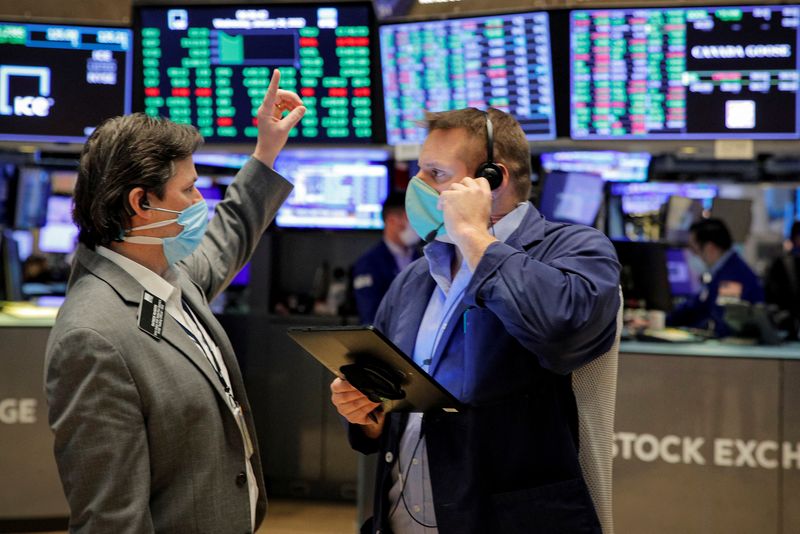By Geoffrey Smith
Investing.com -- Peace talks between the Russian and Ukrainian foreign ministers break up without visible progress, ending the euphoria of Wednesday. The U.K. expands its sanctions list to include Roman Abramovich and Oleg Deripaska. Aluminum prices rise sharply as Rio Tinto (NYSE:RIO) severs links with its joint venture partner Rusal. Oil prices are also up again. Amazon (NASDAQ:AMZN) announces a stock split and a big buyback. U.S. inflation is expected to hit a new 40-year high in February, while the European Central Bank concludes its regular policy meeting. Here's what you need to know in financial markets on Thursday, 10th March.
1. Peace talks break down without progress
Global market euphoria cooled as negotiations between the foreign ministers of Ukraine and Russia broke down without any notable progress after a mere two hours.
Ukraine’s Dmytro Kuleba emerged saying that Russia wanted its complete surrender, while Russia’s Sergey Lavrov said that Ukraine seemed to want meetings for the sake of having meetings. He added for good measure that “we didn’t attack Ukraine.” In response to the attack on a maternity unit in Mariupol, Lavrov said Russia had told the UN three days ago that it had been evacuated and taken over by Ukrainian military personnel. Ukraine says 3 people, including a six year-old chid, were killed by an airstrike on the building.
Elsewhere, the U.K. finally expanded its sanctions list to include oligarchs including Roman Abramovich, the owner of Chelsea Football Club, as well as Oleg Deripaska, former chief executive of aluminum giant Rusal (HK:0486). Rusal was hit a double blow as its joint venture Rio Tinto said it would no longer supply bauxite to a key refinery in Ireland. Aluminum Mini Futures rose over 5% in response.
2. U.S. inflation set to hit new 40-year high; House passes spending bill
U.S. inflation is expected to have hit 7.9% in February, a new 40-year high, with the promise of more to come, given the surge in energy and commodity prices so far this month. The data will be released at 8:30 AM ET along with weekly jobless claims numbers.
On Wednesday, the House of Representatives finally passed a $1.6 trillion bill that will keep the Federal Government funded for the rest of the year.
The Ukraine emergency and the desire to win bipartisan support meant a last-minute increase in defense spending from what was set to be its lowest (as a percentage of GDP) since World War 2, while a raft of spending lines related to pandemic issues was cut.
The package also earmarked $13.6 billion in financial aid for Ukraine.
3. ECB wrestles with stagflation problem
European Central Bank President Christine Lagarde will hold her regular press conference at 8:30 AM ET (1330 GMT), after the bank’s latest policy-setting meeting.
The ECB is widely expected to stick to its previously announced intention of ending the Pandemic Emergency Purchase Program this month, while increasing asset purchases under a different program to cushion the impact of stimulus withdrawal. More important will be any change to Lagarde’s guidance at the press conference, a month after she appeared to open the door to interest rate hikes by the end of the year.
The ECB is facing an increasing risk of stagflation, as record energy prices threaten to keep inflation above target for much longer than previously thought.
A European Union summit is also taking place at the same time. Reuters reported there was not enough support for a French plan to extend joint borrowing to cover future spending needs on defense and energy.
4. Stocks set to open lower; Amazon's buyback, Oracle earnings eyed.
U.S. stock markets are set to open lower, as the euphoria over prospects for a quick end to the war in Ukraine faded.
By 6:15 AM ET (1115 GMT), Dow Jones futures were down 288 points, or 0.9%, while the S&P 500 futures contract was down 0.9% and the Nasdaq 100 futures contract was down 1.2%. The three main cash indices had gained between 2% and 3.6% on Wednesday on the news of the Lavrov-Kuleba meeting.
Stocks in focus later are likely to include Amazon, which announced a $10 billion buyback and a 20-for-1 stock split after the close on Thursday, as well as Oracle (NYSE:ORCL) and Ulta Beauty, which report after the close. Amazon's news softened the blow of fresh regulatory trouble with the Department of Justice
The exodus from Russia continued meanwhile, with Europe’s second-largest brewer Carlsberg (OTC:CABGY) saying it would carve out its local operations into a separate company and stop selling its namesake brand. Japanese-owned fast-fashion giant Uniqlo also reversed course and said it will stop operations in Russia.
5. Oil rebounds as UAE rows back comments on output increase
Crude oil prices rose sharply again as the prospect of an early peace faded, and the United Arab Emirates appeared to backtrack on comments that it may break with the OPEC+ pact on production discipline.
Iraq’s Energy Minister also repeated his country’s adherence to the pact, which had been criticised for not raising output quickly enough to accommodate the recovery in global demand after the pandemic. U.S. inventories fell again last week as record high gasoline prices failed to make a noticeable dent in consumption.
By 6:25 AM ET, U.S. crude futures were up 3.4% at $112.40 a barrel, while Brent crude was up 4.3% at $115.89 a barrel.
